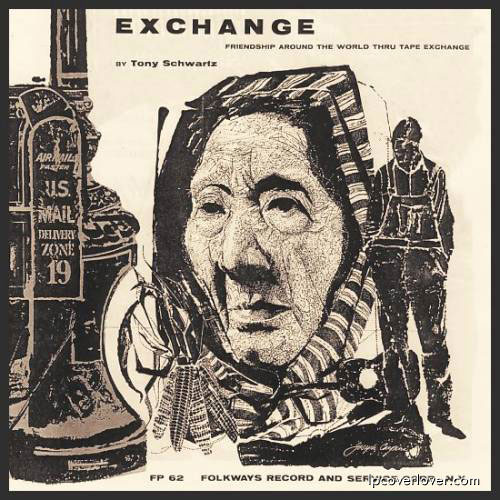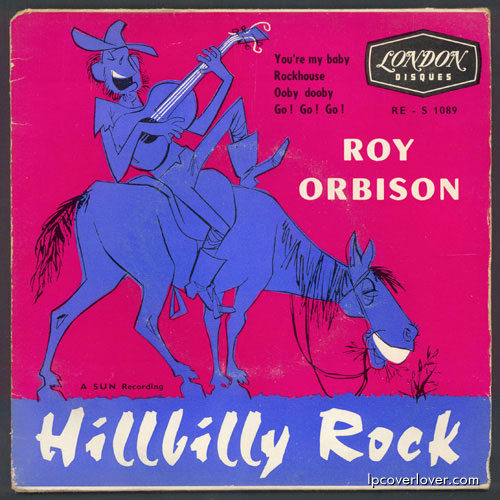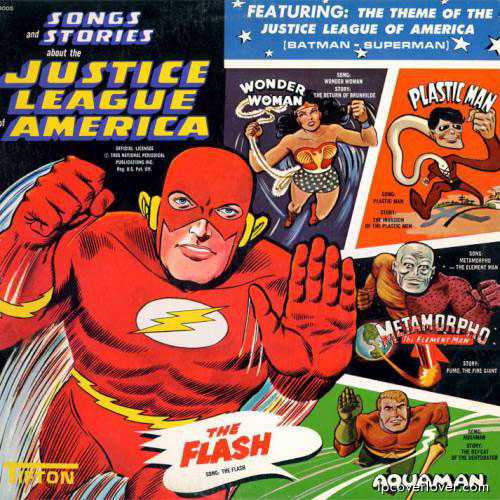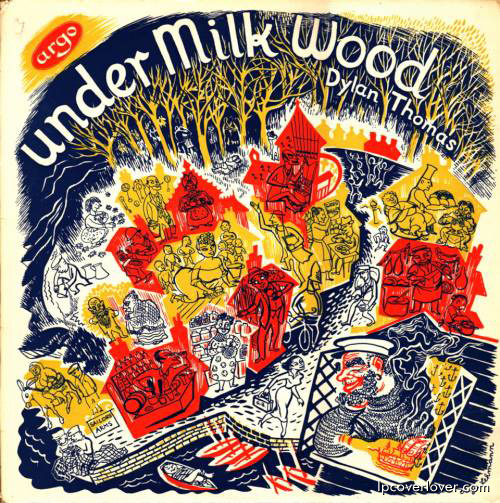By sled or rocket
A rare 45 from Mexico of “Santa Claus Conquers the Martians”. Kapp records. Milton Delugg and his Orchestra.
You are currently browsing the archive for the Illustration category.
A rare 45 from Mexico of “Santa Claus Conquers the Martians”. Kapp records. Milton Delugg and his Orchestra.

Exchange on Folkways Records. “Friendship Around the World Thru Tape Exchange” Tony Schwartz, the father of the mixed tape! Tony was homebound but traveled the world through the audio recordings he traded for with friends around the globe. Long before the web brought people together with instantaneous communication and digital recordings and downloadable files, Tony built a network of like-minded anthropologists, sociologists and collectors.
Rod Hart “Breakeroo!” including the trucker hit C.B. Savage. Rod Hart was one-hit wonder who scored a minor hit single in 1977, “C.B. Savage”, which charted on both the Billboard pop and country charts. The song was a gay themed takeoff on the citizen’s band radio fad and featured a “smokey” (slang for a highway patrolman) pretending to be a gay truck driver over the CB radio. It appeared on his album Breakeroo.

Another great Jack Davis illustration. Homer & Jethro “Songs My Mother Never Sang” on RCA Victor (Trick or Treat series?)

Roy Orbison “Hillybilly Rock” London Records (France) (Sun Records) From the library of Uncle Gil

Songs and stories about The Justice League of America on Tifton Records. Featuring the Flash, Wonder Woman, Plastic Man, Metamorpho and Aquaman and all the DC Comic superheroes.

(Courtesy of Kerstan Reineke)
Listen to the full version of Under Milk Wood – A Play for Voices, recorded by the BBC in 1963, and broadcast on The Third Programme on November 10, 1963.
Subtitled A Play for Voices, Dylan Thomas’ magnum opus carries the double legacy of the author’s extensive work for radio – a medium for which he had an almost intuitive grasp – and his skill and ability as a poet. A polyphonic evocation of a day in the life of an imaginary small Welsh seaside town, Thomas’ play – “a green leaved sermon on the innocence of men” – visits in turn the inhabitants of Llareggub (read it backwards!) while they sleep, when they wake and go about their daily activities, as the night falls. Balancing a rhythmic, densely poetic language with a nuanced ear for the musical cadences of speech, the play’s gentle, affectionate charm and humour resonate to create a deeply textured portrait of a community responding almost mythically to the awakening of spring.
The play also reveals a more serious aspect of Thomas’ creation – it was composed in part as a response to the terrible inheritance of World War II – in which the affirmative, redemptive cast of the play carries a moral dimension, an imaginative, lyrical empathy for the regenerative innocence of the average human being and their capacity for grace. Llareggub becomes a space in which eccentricity is tolerated, sin is forgiven and love is nurtured – or at least dreamt about and possible. Thomas has a compassion for the small dramas of the everyday and a belief that what is commonplace unites us, all underscored by the transformative power of the language he bestows on each inhabitant. His characters – Captain Cat, Myfanwy Price, Organ Morgan, Willy Nilly Postman, Polly Garter, Dai Bread, and others – are generously animated and affectionate.
Under Milk Wood saw a first solo performance by Dylan Thomas in the Fogg Museum at Harvard on May 3, 1953, and a stage performance in New York on October 25 of that year, just before his death on November 9, 1953, but is believed by many to be unfinished, although it seems perfect as it is. It was published after his death in 1954. In 1963 the BBC recorded it for radio with narration by another famous Welshman, Richard Burton, who claimed “the entire thing is about religion, the idea of death and sex”. These important themes are central to the lives of the colourful characters whom Thomas describes with a great deal of fondness.
Under Milk Wood is a sensitive, often comic, examination of Welsh life in which the people are viewed as being particularly blessed. They are the “chosen people of His kind fire in Llareggub’s land” and the town retains its own magic and holy significance despite its faults.
Kermit Schafer (of all those “Bloopers” records) produced this “album of hilarious 19th hole golf humor” GOLF-O-RAMA Vol. 1 (Dedicated to the PGA – “Poor Golfers Association”). A nice cover and illustration from the fifties.